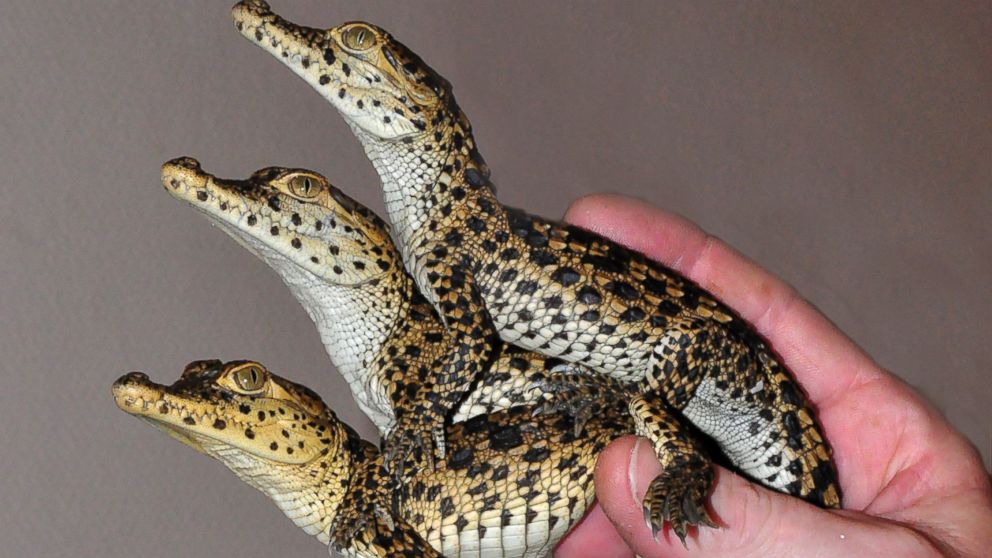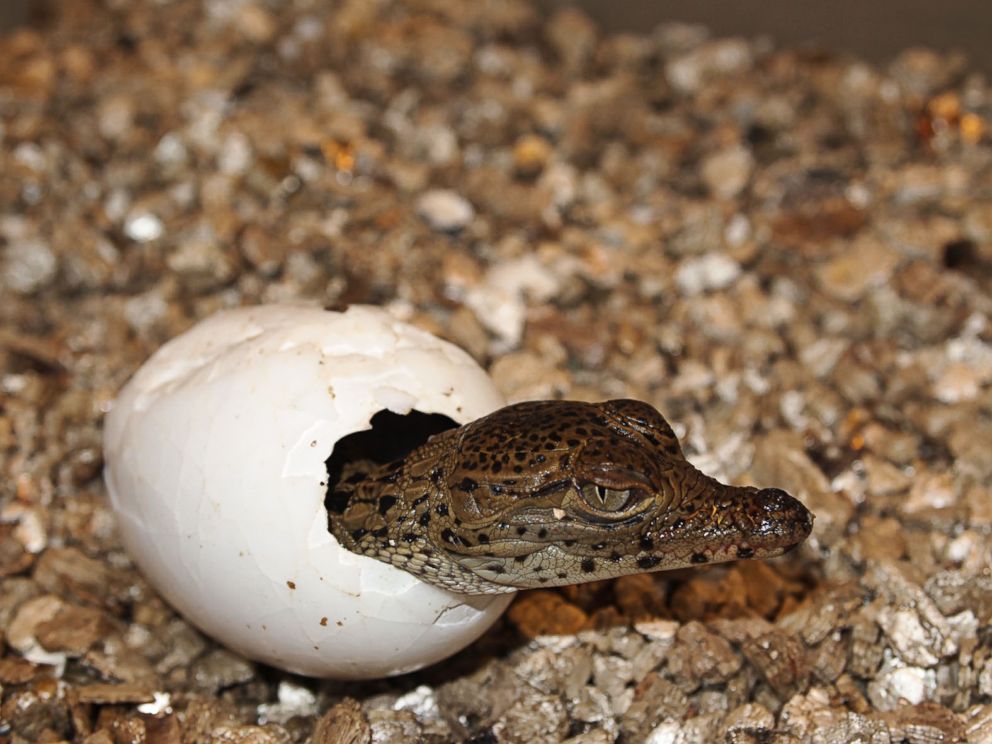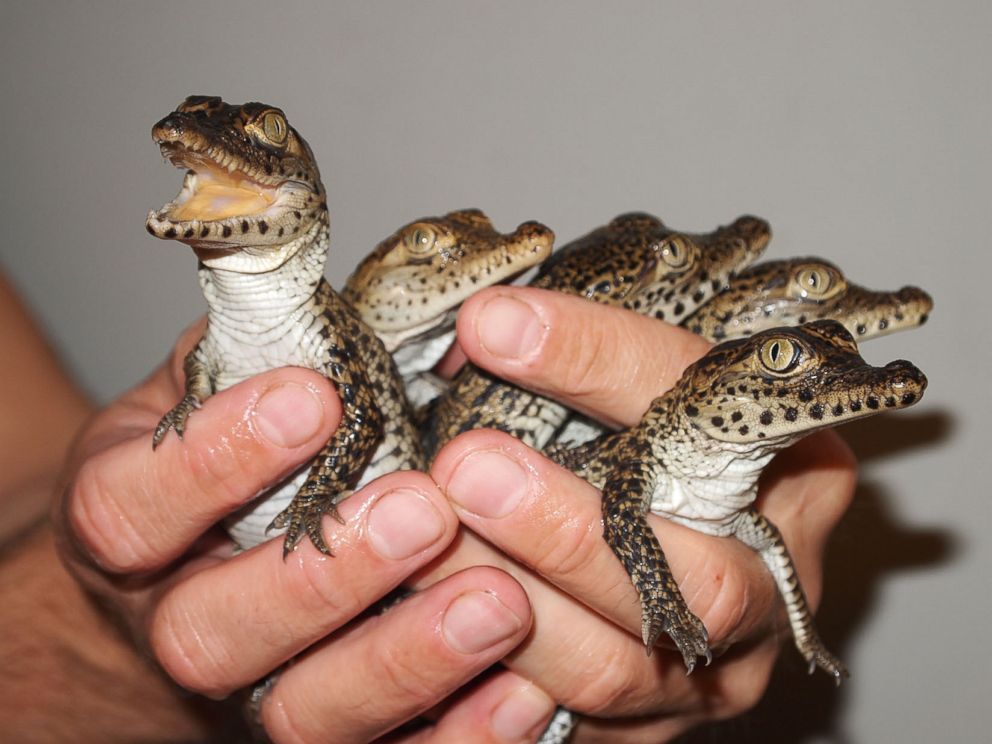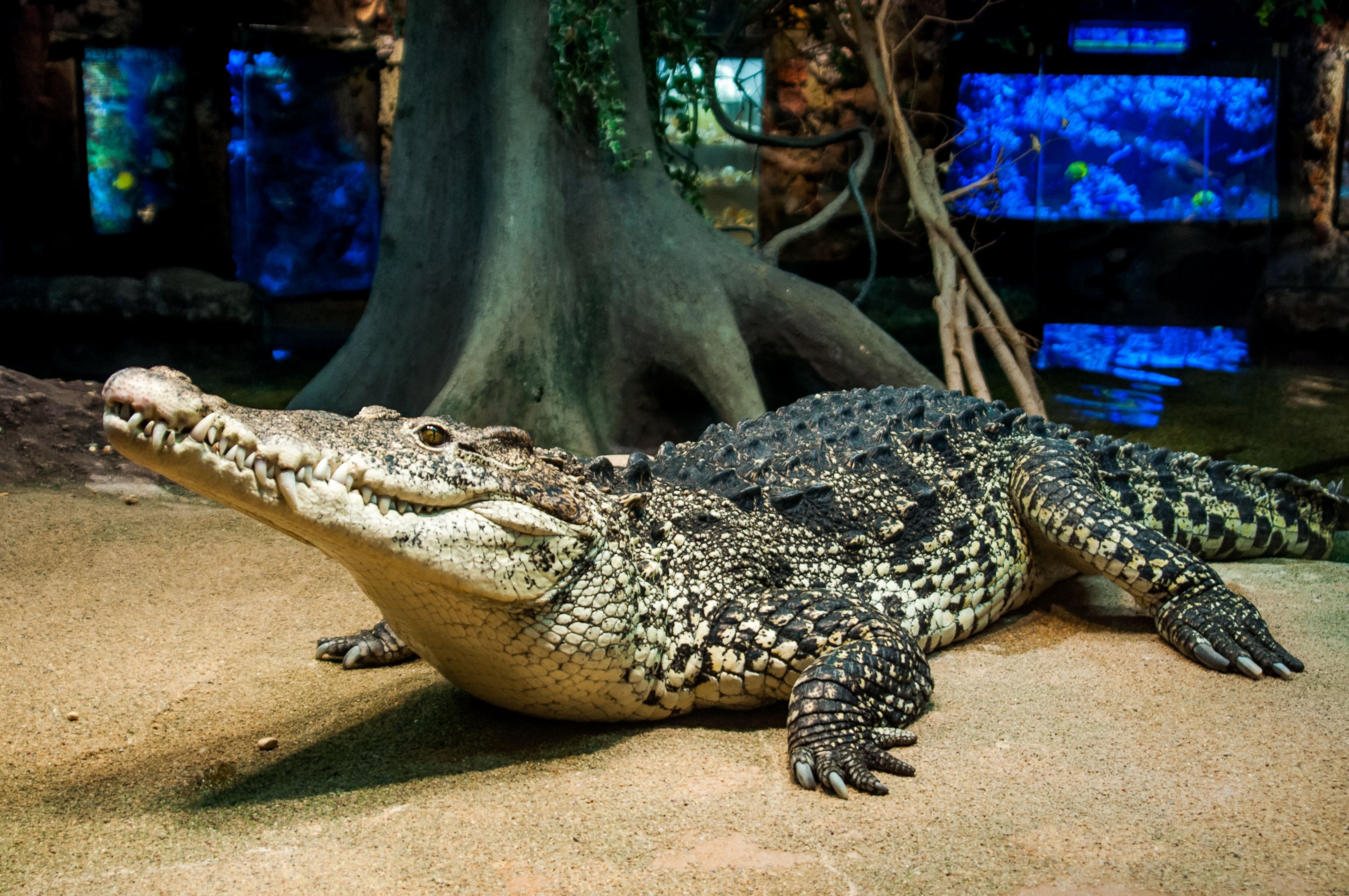Why These Baby Crocodiles Can't Wait to Get to Cuba
Castro and Hillary's offspring heading to the motherland.

LONDON— -- Ten baby crocodiles are arriving in Havana today to be released into the wild, their former zookeeper at Skansen Aquarium in Stockholm, Sweden, told ABC News.
Cuba's former President Fidel Castro gave the crocodiles’ parents to Russian cosmonaut Vladimir Shatalov in the 1970s. Symbolically named Castro and Hillary, as in Clinton, they were eventually transferred to a city zoo in Moscow.

In 1981, the director of Sweden’s Skansen Aquarium visited Moscow where officials offered him the chance to bring the crocodiles to Stockholm, which he accepted. Since 1984, Hillary and Castro have produced more than 100 crocodiles for export around the world.
Cuban authorities reached out to the zoo last year asking whether it would be possible to release some of the crocodiles into the wild in Cuba.
"We said yes immediately," said Bo Jonsson, one of their zookeepers. "Reintroducing animals into the wild is what zoos are for. Our dream is to contribute to animal conservation, taking them from nature to be saved and secured for future release into the wild."

The reptiles will undergo a one-month quarantine and will be kept in a semi-captive environment at the Zapata Crocodile Farm in the Matanzas region in Cuba, Natalia Rossi, Latin America and Caribbean Program Fellow at the Wildlife Conservation Society, told ABC News. “They won’t be released this year,” Rossi said, “because at 3-years-old they are still very vulnerable.”
Cuba has been facing pressure from illegal crocodile poaching in recent years, Rossi noted.
To survive the 48 hours of travel, the babies are being transported by plane in boxes with tubes in them because they are less stressed when they are in a small and confined space where they can't turn around, Jonsson said, adding they will monitor the crocodiles during the trip and make sure they are kept humid.
The aim of their transfer to Cuba is to add a genetic pool to the overall population, estimated at a minimum of 3,000 in the wild worldwide, and increase their survival chances in the long run, Rossi said.
Cuban crocodiles are similar to American crocodiles but tend to be more muscular and aggressive, experts say. Once released into the wild, the zookeeper said, they will adapt to their natural habitat "on day one.”





